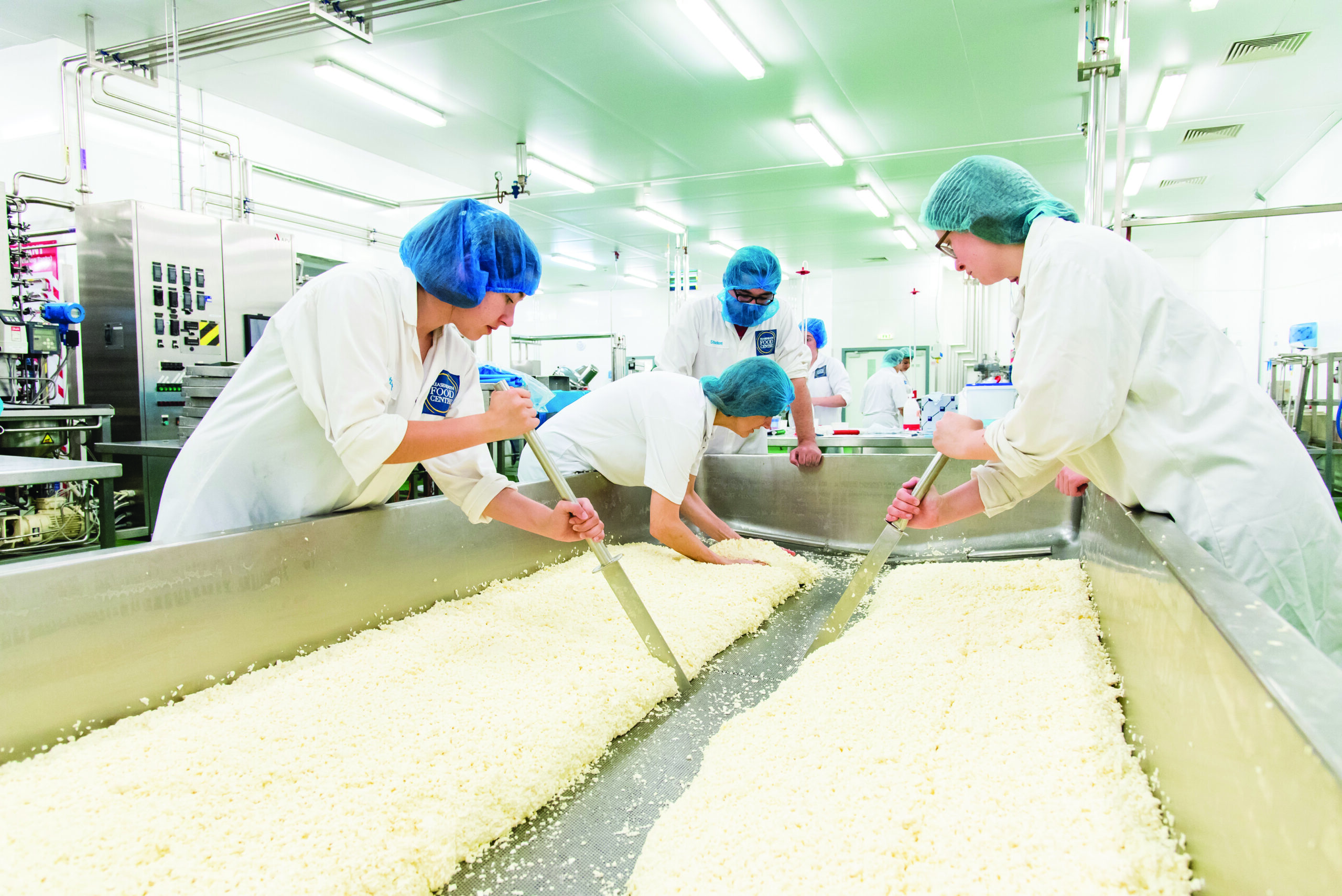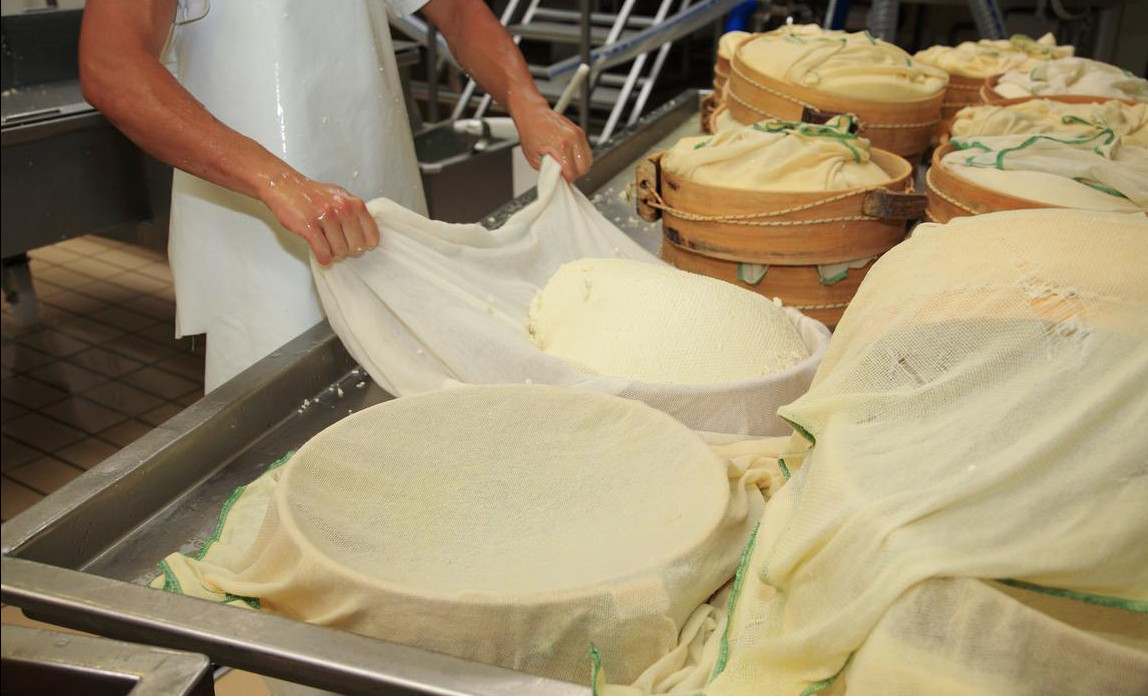A Comprehensive Overview to Cheese Manufacturing: Steps, Difficulties, and Quality Control Steps
Cheese production is a complex process that needs thorough attention to detail, from the first option of premium milk to the lasts of production. Recognizing the important actions entailed, as well as the different obstacles that can occur, is vital for keeping consistent high quality and safety and security. Carrying out reliable high quality control measures is crucial in a sector that faces enhancing examination. As we check out these aspects, it ends up being clear that the future of cheese manufacturing will certainly be formed by evolving fads and technologies that could redefine standard techniques.

Introduction of Cheese Manufacturing
Cheese manufacturing is a complicated procedure that transforms raw milk into a varied series of dairy items, each with one-of-a-kind flavors and structures. The trip starts with the option of premium milk, which can originate from numerous sources, including cows, goats, and lamb. The make-up of the milk-- fat web content, protein levels, and the existence of certain societies-- plays a crucial function in the last item.
The procedure typically includes a number of phases, consisting of pasteurization, where hazardous germs are removed, and the enhancement of starter cultures and rennet, which help with milk coagulation. When coagulated, the curds are divided from the whey, and the curds undertake numerous treatments, including cutting, cooking, and pressing, which substantially affect celebrity's characteristics.
Additionally, aspects such as aging problems, moisture, and temperature level can significantly alter the flavor profile and structure of the cheese. The art of cheese production depends greatly on the cheesemaker's expertise, as they should stabilize scientific research and creative thinking to produce top quality cheese. Understanding these foundational facets is essential for appreciating the detailed nature of cheese manufacturing and the wide range of cheeses readily available in the market today.

Key Tips in Production
Celebrity production procedure involves a number of key actions that collectively change raw milk into a completed item. The process starts with milk collection and top quality assessment, ensuring that the raw product fulfills the necessary requirements for cheesemaking. Following this, the milk is sterilized to eliminate unsafe bacteria, improving the safety and security of the final product.
Next, particular starter societies are included to the pasteurized milk, assisting in the fermentation process. Consequently, rennet is presented to coagulate the milk, resulting in the splitting up of curds and whey.
As soon as the wanted structure is achieved, the curds are drained pipes and pushed into molds, forming the cheese. Each of these actions is important in guaranteeing the quality and features of the cheese created.
Typical Challenges Encountered
While the cheese manufacturing procedure is carefully made, various difficulties can arise that effect both manufacturing efficiency and product top quality. One prevalent difficulty is variations in raw material high quality, specifically milk.
Another significant difficulty is keeping optimal fermentation conditions. Temperature level and moisture variations during aging can result in unwanted microbial development, affecting flavor profiles and cheese security. In addition, staffing issues, including YOURURL.com a lack of knowledgeable labor, can hinder procedures and result in errors in manufacturing processes.
Tools maintenance is also vital; failures can interfere with operations, causing manufacturing hold-ups and raised prices. Regulative compliance presents its very own collection of difficulties, as makers need to adhere to strict food safety standards, which can differ by area. Browsing these challenges needs a proactive approach, incorporating thorough training, routine tools checks, and strong provider relationships to ensure a regular and high-grade cheese outcome.
Quality Control Techniques
Ensuring item consistency and safety relies greatly on effective quality assurance methods throughout the cheese production procedure. These methods encompass different stages, from basic material selection to last product evaluation.
One critical element is the surveillance of milk high quality, which entails screening for microbial contamination, somatic cell matters, and antibiotic residues. Implementing rigid supplier analyses guarantees that just top quality milk is made use of, laying a solid structure for the cheese-making process.
Throughout production, essential control points (CCPs) have to be identified and checked. This consists of temperature level control throughout pasteurization and fermentation, along with pH surveillance throughout curd development - cheese factory melbourne. Regular sampling and evaluation of whey and curds can help find inconsistencies from desired criteria early
Post-production, sensory analyses, chemical analyses, and microbiological testing are important to validate that the last product meets well established top quality requirements. Packaging and storage space problems additionally require close oversight to avoid perishing and contamination.
Including a robust quality administration system, including paperwork and traceability, sustains compliance with food safety policies. By embracing these detailed top quality control strategies, cheese manufacturers can considerably improve product high quality and consumer count on.
Future Trends in Cheesemaking
As the cheese manufacturing landscape evolves, innovative practices and technologies are shaping the future of cheesemaking. One notable trend is the increasing usage of automation and expert system (AI) in manufacturing procedures. These modern technologies boost performance, lower labor expenses, and enable for higher precision in cheese formulation and aging, causing regular high quality and flavor accounts.
Sustainability is an additional essential emphasis, with cheesemakers embracing ecologically friendly techniques, such as sourcing milk from neighborhood farms, utilizing renewable power sources, and implementing waste decrease approaches. This shift not only interest ecologically conscious customers however likewise addresses regulatory stress for sustainable practices.
In addition, the demand for artisanal and specialty cheeses remains to rise, motivating manufacturers to explore one-of-a-kind taste combinations and cutting-edge aging methods. This trend is enhanced Visit This Link by the expanding rate of interest in plant-based and non-dairy cheese alternatives, driven by nutritional preferences and wellness considerations.
Additionally, innovations in innovation help with enhanced traceability, enabling consumers to much better comprehend the beginning and production methods of their cheese. As Your Domain Name these trends unravel, the cheesemaking industry is positioned to accept a future characterized by technology, sustainability, and a commitment to quality.
Verdict
In summary, cheese production includes an intricate interaction of processes, challenges, and top quality control actions that are crucial for creating varied cheese varieties. The selection of top notch milk, adherence to pasteurization criteria, and meticulous fermentation conditions are necessary for ensuring product security and uniformity. Resolving existing challenges, such as labor shortages and devices maintenance, together with welcoming future fads in automation and sustainability, will significantly improve the cheese market's capacity to meet developing consumer needs and preserve high requirements.